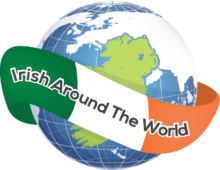Another week and another top Irish poem this poem is ranked number 10 in the top 100 Irish poems.
The great W.B. Yeats is featured in yet another Irish poem. I still remember some of his poems from when I was in school in Cork. I never thought I would be writing it again all these years later.
I share these top 100 Irish poems every week on my weekly dose of Irish, subscribe here.
What is the poem the Stolen Child about?
This incredible Irish poem is right up my street. It is one of Yeats earlier poems and is based on Irish legendary faeries. Yeats also had a great interest in Irish mythology.
I found this poem very moving.
I especially liked these lines:
Where the wave of moonlight glosses
The dim grey sands with light,
Far off by furthest Rosses
We foot it all the night,
Weaving olden dances,
Mingling hands and mingling glances
Till the moon has taken flight;
To and fro we leap
And chase the frothy bubbles,
While the world is full of troublesVery lyrical and beautiful.
The poem was first published in the Irish Monthly in December 1886. The poem was then published in a compilation of work by several Irish poets Poems and Ballads of Young Ireland in 1888 with several critics praising the poem. It was later published in his first book of poetry The Wanderings of Oisin and Other Poems as well as Fairy and Folk Tales of the Irish Peasantry. Source Wiki
Let’s get to the Irish poem.
The Stolen Child
W. B. Yeats – 1865-1939
Where dips the rocky highland
Of Sleuth Wood in the lake,
There lies a leafy island
Where flapping herons wake
The drowsy water-rats;
There we’ve hid our faery vats,
Full of berries
And of reddest stolen cherries.
Come away, O human child!
To the waters and the wild
With a faery, hand in hand,
For the world’s more full of weeping than you can understand.
Where the wave of moonlight glosses
The dim grey sands with light,
Far off by furthest Rosses
We foot it all the night,
Weaving olden dances
Mingling hands and mingling glances
Till the moon has taken flight;
To and fro we leap
And chase the frothy bubbles,
While the world is full of troubles
And anxious in its sleep.
Come away, O human child!
To the waters and the wild
With a faery, hand in hand,
For the world’s more full of weeping than you can understand.
Where the wandering water gushes
From the hills above Glen-Car,
In pools among the rushes
That scarce could bathe a star,
We seek for slumbering trout
And whispering in their ears
Give them unquiet dreams;
Leaning softly out
From ferns that drop their tears
Over the young streams.
Come away, O human child!
To the waters and the wild
With a faery, hand in hand,
For the world’s more full of weeping than you can understand.
Away with us he’s going,
The solemn-eyed:
He’ll hear no more the lowing
Of the calves on the warm hillside
Or the kettle on the hob
Sing peace into his breast,
Or see the brown mice bob
Round and round the oatmeal-chest.
For he comes, the human child,
To the waters and the wild
With a faery, hand in hand,
For the world’s more full of weeping than he can understand.
I share these top 100 Irish poems every week on my weekly dose of Irish, subscribe here.
